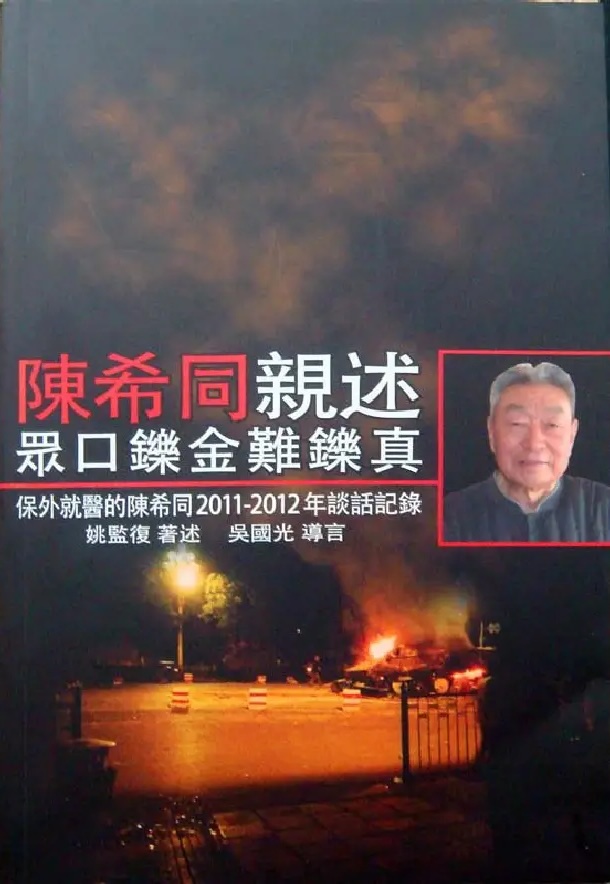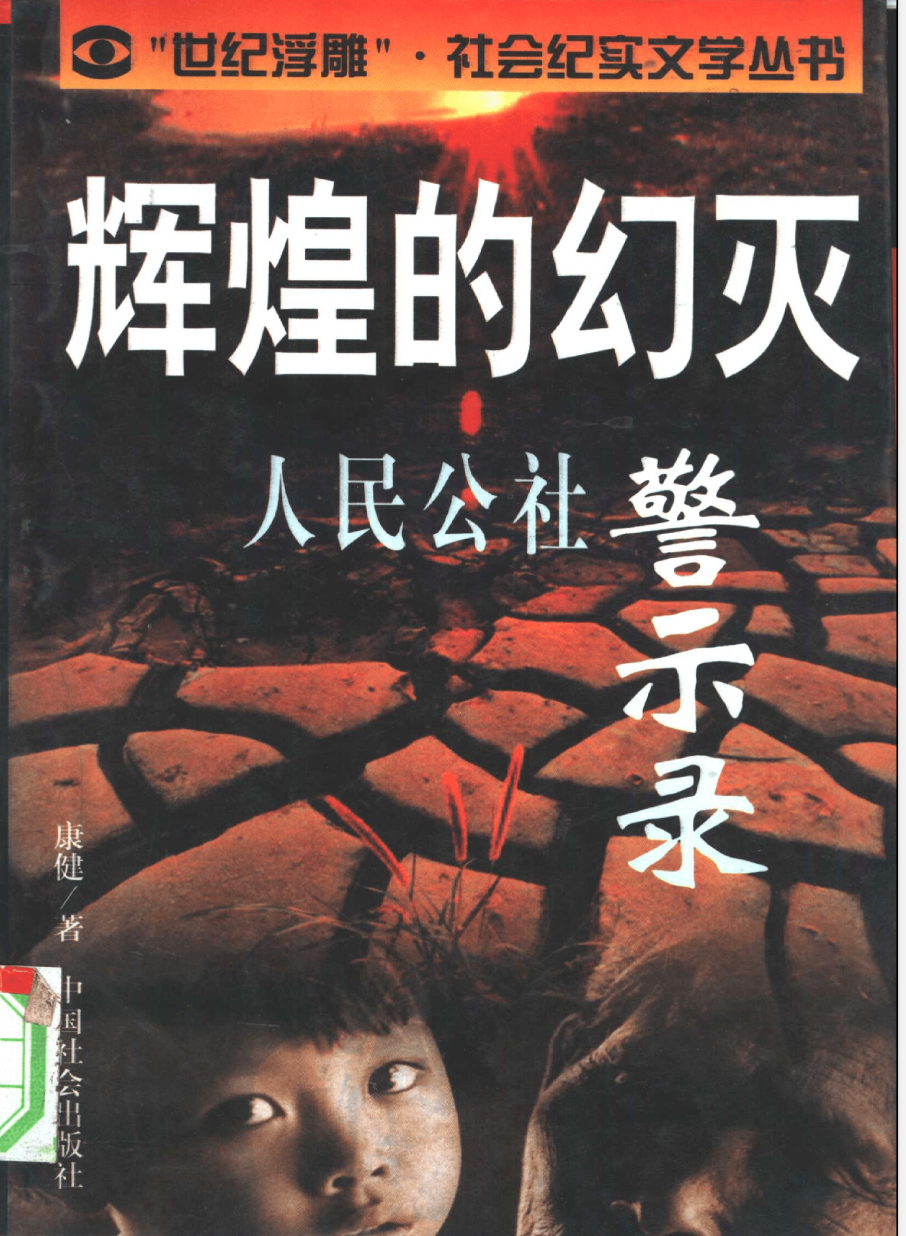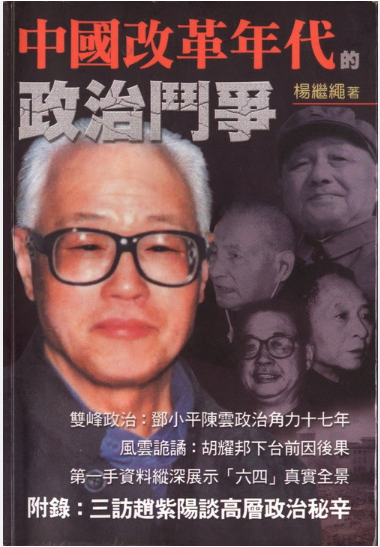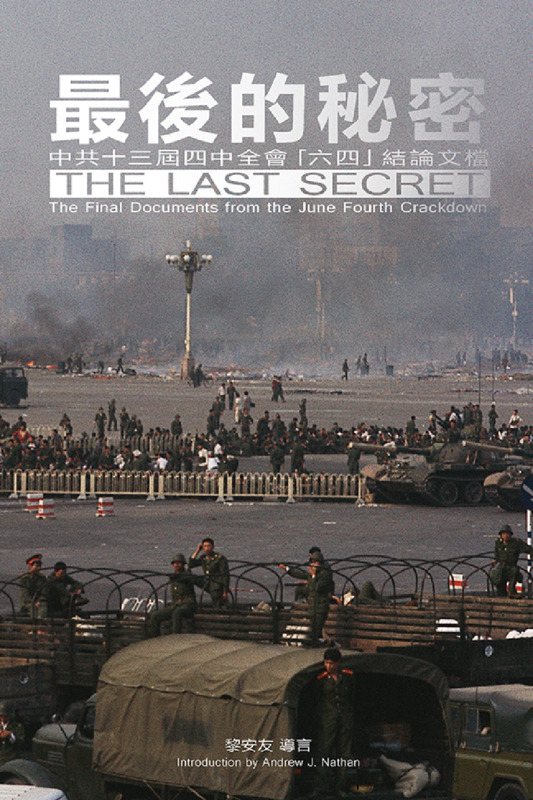Explore the collection
Showing 24 items in the collection
24 items
Book
A Non-governmental White Paper on the June Fourth Massacre
At the turn of the spring and summer of 1989, democratic protests broke out in Beijing and other cities in China. In the early hours of June 4, the Chinese government dispatched troops to suppress the movement. In 2009, on the occasion of the 20th anniversary of the June 4th Incident in 2009, some participants in the movement jointly released the "Unofficial White Paper on the June 4th Incident". The book has 48 pages and a large number of illustrations.
This white paper attempts to provide a complete political background and legal analysis of the events based on reports from Chinese newspapers, radio and television stations at the time, as well as memoirs and interviews that have been published over the past 20 years. Participants in this book believe that the Chinese government has not conducted a comprehensive investigation and objective evaluation of the June 4th Incident, and has long blocked relevant information and prohibited private investigation and discussion of the matter. The report is called a "white paper" to emphasize its rigor and normative nature.
Participants in this book include Hu Ping, Yan Jiaqi, Wang Juntao, Wang Dan, Yang Jianli and others. The book was written by Li Jinjin, a doctor of law.
Book
At the Crossroads of History
This book is Gao Hua's next masterpiece after *How the Red Sun Rose*. It entails a selection of papers published by the author between 1988 and 2004, covering the fields of Republican history, Communist Party history, and contemporary Chinese history. It captures the historical interaction between the present and the past. Gao reflects deeply on the far-reaching Chinese Communist Revolution. With a rigorous and empirical research methodology, he sketches a complex and colorful picture of history, presenting the multiple facets of twentieth-century China's history.
Book
Chen Xitong's Personal Account - It's Hard to Fuse the Truth with All the Words
The book is a transcript of conversations between Yao Jianfu, a well-known Chinese scholar, and Chen Xitong, who was released on medical parole between 2010 and 2012. Chen Xitong was the mayor of Beijing during the 1989 student movement and was considered one of the main suppressors of the movement. In 1998, Chen was sentenced to 16 years in prison on charges of "embezzlement." In 2004, he was released on medical parole. In this book, Chen Xitong tells his version of the June 4 Tiananmen massacre. He denies not only that he was the head of the "June 4 Martial Law Command" and also claims he is innocent of the charge corruption.
Book
Collected Papers of Wu Yisan (1)
Writer Wu Yisan is the founder of Hong Kong's May 7 Society, an organization dedicated to the collection, research and publishing of everything related to the anti-rightist campaign in 1957,to restore and present the truth about a period of history characterized by severe persecution of remedial intellectuals. Over the years, Mr. Wu has devoted himself to compiling The Dictionary of Names of 1957 Victims. As the Chief Editor of The Hong Kong May 7 Society Publishing House, he also published The Biography of the Rightists of the May 7.
This book is a collection of his political papers, comprising more than 50 published and unpublished essays primarily written between 2004 and 2009, criticizing CCP from various perspectives, including history, current affairs, and culture.
Book
Collected Papers of Wu Yisan (2)
Writer Wu Yisan is the founder of Hong Kong Five-Seven Society, an organization established in 2007 and dedicated to the collection, research and publishing of everything related to the Anti-Rightist campaign in 1957, to restore and present the truth about a period of history characterized by severe persecution of intellectuals. Over the years, Mr. Wu has devoted himself to compiling *[The Dictionary of Names of 1957 Victims](https://minjian-danganguan.org/collection/1957%E5%B9%B4%E5%8F%97%E9%9A%BE%E8%80%85%E5%A7%93%E5%90%8D%E5%A4%A7%E8%BE%9E%E5%85%B8)*. As the Chief Editor of The Hong Kong Five-Seven Society Publishing House, he also published *The Biographies of the 1957 Rightists* and *[New Biographies of the 1957 Rightists](https://minjian-danganguan.org/collection/%E2%80%9C%E4%BA%94%E4%B8%83%E2%80%9D%E5%8F%B3%E6%B4%BE%E5%88%97%E4%BC%A0%EF%BC%88%E4%B8%8A%EF%BC%89)*.
This book is a collection of Wu’s political essays, including nearly one hundred of his published and unpublished essays and speeches between 1999 and 2017, including historical and current affairs analyses, with an emphasis on commentaries of persecuted intellectuals and political dissidents. These people are often called "traitors of China (han jian)" by CCP, but Wu Yisan argues that the CCP is the real traitor that betrays the country and its people.
Our archive also hosts another anthology of his, *[Is Chen Yi a Good Comrade](https://minjian-danganguan.org/collection/%E6%AD%A6%E5%AE%9C%E4%B8%89%E6%94%BF%E8%AE%BA%E6%96%87%E9%9B%86%EF%BC%881%EF%BC%89)*?
Book
Disillusionment of Splendor: A Cautionary Tale of a People's Commune
This book tells the story of China's first people's commune - the Chayashan People's Commune in the author's hometown. Chayashan is a township located in Suiping County, Xinyang City, southern Henan (now part of Zhumadian District). It is the location of the country's first people's commune established by Mao Zedong in 1958, and was also a model commune during the Great Leap Forward period. At the Lushan Conference in 1959, the commune was used in Mao Zedong's counterattack against Peng Dehuai, a general who opposed Mao's policies.
The author Kang Jian is a war veteran. More than thirty years after the Great Famine, Kang Jian visited the villages in Chayashan to conduct an oral history investigation. He used oral interviews to record the daily lives and experiences of farmers under collective economic practices. The author writes in the form of interviews, showing the history of Chayashan People's Commune in detail, and using specific cases to present the relationship between national political behavior and individual destiny.
Periodicals
Examination of the Great Famine of the 1960s in Gansu Province
This book is a series of studies on the socio-economic situation in Gansu Province during the Great Famine of 1958 to 1961. The book is, divided into two parts.
The first part consists of five research articles, which document the miserable situation of the people of Gansu during the Great Famine. According to the book, the Gansu Provincial Party Committee admitted in a report that there were incidents of cannibalism in the area during the Great Famine. The articles also expose a series of activities by local authorities during the Great Leap Forward Campaign, such as the irrational construction of mega hydraulic projects, the false reporting of grain output, the operation of communal canteens that caused huge waste, and misleading the hungry people to eat bark and mud. The articles also analyze the reasons behind the disaster.
The second part of the book contains important historical documents reflecting the situation at that time, which are the evidence to support the author's research and analysis, including Gansu Provincial Party Committee's directives on the People's Commune, as well as a number of reports on the Committee’s work submitted to the Central Party Committee. In addition, the book contains news, propaganda posters and photographs published in newspapers at the time.
This book is the 20th series of the Lanzhou Literary and Historical Materials (there is a total 23 series) compiled by the Literary and Historical Materials and Study Committee of the Lanzhou Municipal Political Consultative Conference, an advisory body to the CCP (which is actually directly directed and supervised by CCP). This gives the book special value, as it reflects a semi-authoritative voice that supports independent historians' contention that the famine was far deeper and widespread than official historiography admits.
The book was published in 2002, written by Wu Wenjun and edited by Wang Jialuo. Wu Wenjun and Wang Jialuo also worked together on the 22nd series of the Lanzhou Literary and Historical Materials *Examination of the Great Famine of the 1960s in China* (which is also held by the archive). All but the 20th and 22nd series are available on the website of the Lanzhou Municipal Political Consultative Conference (https://www.gslzzx.gov.cn/col/col11760/index.html) .
Book
Great Power Sinking: A Memo to China, A
This book is a collection of political essays by Nobel Peace Prize winner Liu Xiaobo. It is a sister volume to *Single-Edged Poisoned Sword - A Critique of Contemporary Nationalism in China*, which covers many aspects of Chinese politics, including: one-party dictatorship, powerful capitalism, rights defense, June Fourth, and nationalism.
Book
Lushan meeting factual record
This book is a historical record of the 1959 Lushan Conference written by Li Rui. Based on the author's personal experience and the literature of the relevant departments of the Communist Party of China, the author has recorded the important points and events before and after the meeting. The first edition of this book was published in April 1989 by the Spring and Autumn Publishing House and Hunan Education Publishing House in mainland China; the updated edition was published in June 1994 by Henan People's Publishing House.
Book
Mao in Power (1949-1976)
The author of this book, Shan Shaojie, is a scholar from mainland China. For several years, he wrote this book from an independent position. Former political secretary of Mao Zedong, Li Rui, and Princeton University professor, Yu Yingshi, wrote the foreword for this book. In addition to a systematic account of the Maoist era, Shan Shaojie's book "Mao in Power" emphasizes that almost all members of the Communist Party's highest decision-making echelons, with the exception of Mao Zedong, made efforts, in varying degrees and successively, to stop Mao's insanity. Moreover, they took turns to resist and ultimately to leave Mao alone, but did not really stop Mao's madness. This book was published by Linking Publishing in 2001 and has been reprinted several times.
Book
Mao: The Unknown Story
This book presents the dramatic life of Mao Zedong, revealing a wealth of unheard-of facts: why Mao joined the Communist Party, how he came to sit at the top of the Chinese Communist Party, and how he seized China step by step. Writers Jung Chang and her husband Jon Halliday took ten years to complete this book, interviewing hundreds of Mao's relatives and friends, Chinese and foreign informants and witnesses who worked and interacted with Mao as well as dignitaries from various countries.
Purchase link:https://www.amazon.com/Mao-Story-Jung-Chang/dp/0679746323.
Book
Political Struggles in China's Reform Era
The author of this book, Yang Jisheng, is a veteran journalist with 35 years of experience in journalism at Xinhua News Agency, China's official news organization. He knows a great deal about the ups and downs of Chinese politics after the end of the Cultural Revolution as well as the intricate power struggles at the top and has a lot of first-hand information. He personally interviewed Zhao Ziyang, Zhu Houze, Li Rui, Ren Zhongyi, An Zhiwen, Tian Jiyun, and other important people. “Political Struggles in China's Reform Era”, first published in Hong Kong in November 2004, was the subject of a series of crackdowns by the authorities against Yang Jisheng. It was republished in 2010 by Hong Kong's Cosmo Books.
Book
Prisoner of the State: The Secret Journal of Premier Zhao Ziyang
“The Course of Reform”, a memoir by Zhao Ziyang, former General Secretary of the Central Committee of the Communist Party of China, was published on May 29, 2009 by New Century Press in Hong Kong. Its English translation, “Prisoner of the State: The Secret Journal of Premier Zhao Ziyang” was published on May 13 before that. According to the book's preface, in 1992, Du Guanzheng, an old subordinate of Zhao Ziyang and former director of the State Press and Publication Administration, together with Xiao Hongda, another former high-ranking CCP official, persuaded Zhao Ziyang, who was under house arrest, to organize his experiences into a book.
Purchase link: https://www.kobo.com/hk/zh/ebook/ZoerWPfG8TiqoXIYwvW2iw.
Film and Video
Ram
The documentary "Ram" was filmed by independent director Tiger Temple in 2016 and is available here in a revised version by the author in 2021. The film documents a real-life incident that took place in Xi'an during the "1983 crackdown". The encounter of the artist Gong Yang (real name Li Xiaoming), the main character of the documentary, is quite representative. It reflects the cruelty and absurdity of the "1983 Crackdown" political campaign launched under the direction of Deng Xiaoping.
Book
Seventy Years of the Chinese Communist Revolution
Professor Chen Yongfa's book examines the history of the Chinese Communist Party from the perspective of modern Chinese history. It divides it into three stages: revolutionary seizure of power, continuous revolution, and farewell revolution. It delves into three major issues in CCP history: nationalism, grassroots power structure, and ideological transformation and control. published by Taiwan's Linking Publishing in 2001.
Book
The Great Leap Forward: An Intimate Memoir
Li Rui, who once served as Mao's secretary, is also an expert on Mao Zedong. Like his famous <i>Proceedings of the Lushan Conference</i>, this book is also an important historical work. It focuses on the author's personal experience of the Great Leap Forward initiated by Mao Zedong.
Book
The Last Secret : The Final Documents from the June Fourth Crackdown, Introduction by Andrew J. Nathan
The documents in this book come from two high-level meetings of the CCP held after the June 4 Tiananmen Square Incident in 1989, namely, the Sixth Plenary Session of the Sixth Committee of the Beijing Municipal Committee of the CCP and the Fourth Plenary Session of the Thirteenth Central Committee of the Chinese Communist Party (CCP), which was held on June 23rd and 24th at the Beijing West Guest House. The author claims that the documents were copied and kept for many years by an unnamed senior official within the CCP. This set of documents was formed when the CCP made its final conclusions on the June 4 incident. It is also a record of the high-level political operations within the CCP. These documents reveal the ultimate secret of the mechanism by which the Communist Party has always held absolute power. It was published by New Century Press in 2019. Special thanks to Bao Pu, founder of Hong Kong's New Century Press and son of Bao Tong, former political secretary of Zhao Ziyang, for authorizing CUA to share the book.
Book
The Power of Tiananmen:State-Society Relations and the 1989 Beijing Student Movement
<i>The Power of Tiananmen: State-Society Relations and the 1989 Beijing Student Movement</i> is a sociological monograph. It explains the process of the 1989 school movement and interprets the political and economic situation from four perspectives: state legitimacy, ecological environment and mobilization structure, discourse and modes of action, and public opinion. Author Zhao Dingxin interviewed 70 participants in the movement at the time. He also examined many little-known domestic documents. Thus, theory and evidence are closely intertwined.
The book won the 2002 Distinguished Book Award (Collective Action/Social Movements) and the 2001 Distinguished Book Award (Asian and Asian American) from the American Sociological Association.
It is published by the Chinese University of Hong Kong Press.



















